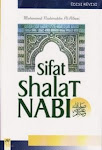THE DYNAMICS OF
DISSEMINATING SALAFI
TEACHINGS
The main vehicles for spreading salafi teachings go
back to Mohammed Natsir's troika: pesantrens,
mosques, and university campuses. As Middle
Eastern money, particularly from
to see how the post 9/11 funding cutbacks affect the
growth of the movement.
A. PESANTRENS
The pesantrens are most important. From a handful
of salafi institutions in the early 1980s, such as the
long-established Persis school in Bangil,
there are hundreds today, as graduates set up their
own, often with links to their alma maters.
The alumni network of the al-Irsyad Pesantren
mentioned above makes an interesting case study. As
noted, the pesantren was established in Tengaran,
Salatiga, not far from the Central Javanese provincial
capital,
in 1988, and produced its first graduates in 1992. Its
original director was Yusuf Baisa, like many salafi
leaders, an Indonesian of Arab (Hadrami) descent.
Baisa was a graduate of the Persis pesantren in Bangil
and went on to LIPIA about the same time as Ja'far
Umar Thalib. He subsequently studied in
The main objectives of the pesantren since its
founding have been:
to train instructors in Islam and Arabic who
can then be placed in Muslim schools and
pesantrens;
to prepare muballigh to propagate salafi
methodology in the public at large;
to implement a religious outreach program to rid
Islam of innovation, idolatry and superstition; and
to conduct dauroh programs and other forms
of training.
Outreach work is part of the standard curriculum, and
students are expected to teach in the local community
while completing their studies, or in kindergartens,
ICG
mosques, orphanages, prisons and other institutions
with which the pesantren has links.50
After graduation, students are meant to complete a
two-year community service assignment (Khidmah
Dakhwah dan Taklim), in effect, voluntary religious
teaching, either locally or in areas as far away as
independence,
2001, six stayed at the pesantren, eight went slightly
further afield in
and the rest to West or
graduates the next year, two went to
to
on in Java, in most cases, apparently with other
salafi pesantrens.51
Internationally, the school maintains ties to the
Islamic University in
which it has received accreditation (mu'adalah) for
its teaching program. It has also received help from
the Saudi government to bring in foreign teachers
and support some of its activities, and from at-Turots
in
The at-Turots network in
interesting case. Founded by Abu Nida', it now has
several schools with more in preparation. Officially,
only five institutions are owned and operated by Abu
Nida's at-Turots Foundation in
Majelis At-Turots al-Islami).52 But there is a much
wider informal network of schools that also receive
funding from the Kuwaiti charity, much of it
channelled through the
of at-Turots in Jakarta.53 At least two of these focus
on recruiting students from predominantly non-
50 For example, al-Irsyad works closely with nine mosques, 24
Muslim kindergartens, and two detention centres. It has
partnership arrangements with two Islamic academies (mahad
aly) in Solo and Salatiga, with LIPIA, and with a state Islamic
academy (STAIN) in Salatiga.
51 Information made available to ICG.
52 They include the Islamic Centre bin Baz in Bantul, Central
Java; the Jamilurrahman al-Salafy Pesantren, also in Bantul;
a clinic and maternity hospital; the magazine al-Fatawa, and
an agency providing travel services and education for
pilgrims to
53 They include Ahmad Faiz's Imam Buchori Pesantren, run
by the Yayasan Lajnah Istiqomah; Aunur Rofiq's Mahad al-
Furqon in Gresik, run by the Lajnah al-Furqon al-Islami;
Pesantren Ibnu Taimiyyah in
Pesantren Ibnu Taimiyyah in
Muslimin Pesantren in Cisaat; and the al-Imam Pesantren
outside
Muslim areas and pride themselves on the number of
converts (mualaf). Recruiting is said to be particularly
strong in
largely Christian island off the coast of
student recruited is expected to stay at the pesantren
for six years, after which males have an opportunity
for fully-funded study abroad, usually at either the
Islamic University in
faculty of
expected to return eventually to their places of origin,
with the hope that each will eventually establish a
new pesantren or at least a mosque.54
Yayasan al-Huda, another salafi institution set up in
1998 in Ciomas,
producing memorizers of the Quran. In the interests
of religious outreach, it set up not only kindergartens
but also Radio Al-Imam Swaratama, whose broadcasts
reach well into













0 komentar:
Post a Comment